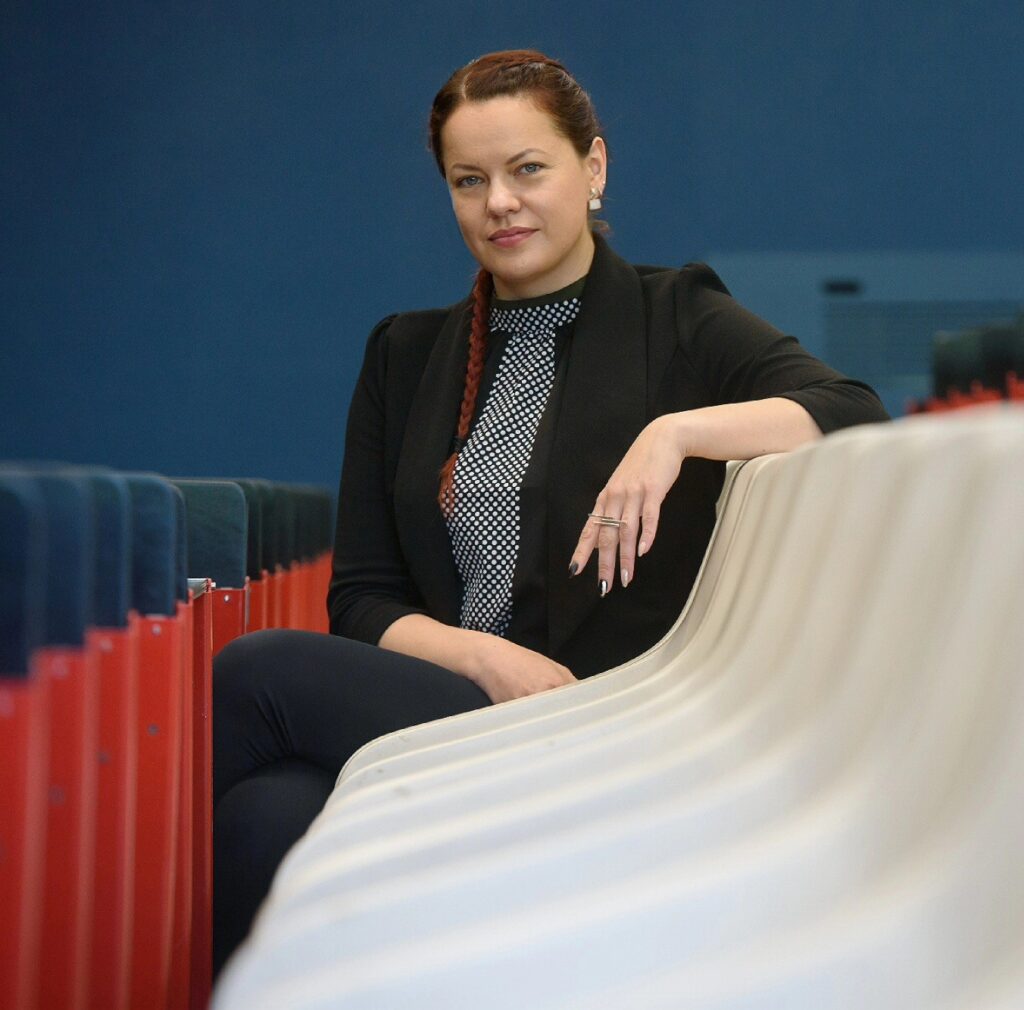An interview with Nex Day co-founder Gerda Noormägi. Gerda brings a diverse background in public governance, experiential education, and organizational strategy. She has led quality and customer experience improvement projects at Inchcape Motors, spearheaded leadership transformation at the Police and Border Guard Board, and contributed to the global impact of the European Innovation Academy. Nex Day, Estonia’s first radical leadership conference, is her latest endeavor—designed to challenge outdated systems and empower leaders with the tools to rebuild them.
What shaped you into the leader you are today?
Over the past decade, I’ve led organizations across public, private, and nonprofit sectors. My career has been about navigating complexity, building clarity, and fostering purpose-driven change. But the most formative experience didn’t come from a success. It came from a breakdown.
In my last role, despite alignment with the mission and a strong team, I faced persistent systemic dysfunction: unclear governance, fragmented accountability, and constant overextension. Eventually, I burned out—not the “I need a vacation” kind, but the kind that forces you to ask if continuing means betraying your own values, relationships, and health. That moment taught me that burnout isn’t personal failure—it’s a structural consequence. And those failures are expensive. They cost organizations talent, productivity, and credibility. They cost governments tax money, public health, and trust. They cost people their well-being, careers, and families. And as leaders, we have a responsibility to change that—or step aside.
What’s a leadership moment you’re most proud of—and why?
Leaving.
It’s not glamorous, but stepping away from a high-profile role in an organization I believed in was the most difficult—and most courageous—leadership decision I’ve made. Staying would have meant compromising my values and modeling burnout as acceptable leadership. Resigning wasn’t an escape. It was an act of integrity. A turning point. It affirmed that leadership isn’t about loyalty to roles or titles—it’s about alignment with purpose, even when it costs you.
That decision wasn’t an escape. It was a beginning. And it meant trusting that there was a better way to lead—and committing to build it.
Why are you willing to invest your time and energy into building Nex Day?
Because the dominant leadership paradigm was invented over a century ago—and it no longer fits.
The classical management model treated organizations like machines and people like interchangeable parts. It emphasized five functions: planning, organizing, commanding, coordinating, and controlling. Leaders were meant to direct. Workers were meant to obey. Success was efficiency. Motivation came from carrots and sticks.
That model worked—for the 20th-century factories.
But today’s work isn’t linear or mechanical. We now face constant volatility, uncertainty, complexity, and ambiguity. AI now performs most traditional management tasks—planning, tracking, coordinating—faster and better than humans. So if leaders keep functioning like control hubs, we’re not just mismanaging people—we’re making ourselves obsolete.
And it’s not just about tools. It’s about trust. New generations entering the workforce reject hierarchy for hierarchy’s sake. They want purpose, fairness, and flexibility. When they don’t find it, they disengage—or burn out. In Estonia, the sharpest rise in burnout-related sick leave has been among professionals aged 30–39. That’s not a blip. That’s a message.
Nex Day exists to respond to that message. We don’t need leaders who act like spreadsheets. We need leaders who can design systems of autonomy, clarity, and trust. We need a leadership model that can’t be automated.
That’s what I am here at Nex Day to build.
What does “leadership done differently” mean to you, personally?
It means owning the truth: leaders aren’t just affected by broken systems—they maintain them. And they have the power to redesign them.
Leadership done differently is about moving from heroism to stewardship. Structure over chaos. Trust and autonomy over micromanagement. It’s about moving from reactive firefighting to regenerative design. Creating cultures where people don’t just follow—they step up.
Personally, it means leading with integrity, not image. It means prioritizing sustainability—of energy, relationships, and purpose—over performance at any cost. Choosing honesty when it’s inconvenient. And modeling the kind of leadership I want others to inherit.
What do you hope another leader walks away with after Nex Day?
I hope they leave with clarity. With actionable tools. And with permission.
Permission to challenge what they’ve inherited. Permission to lead without self-sacrifice. Permission to recognize that burnout is a signal—not a weakness.
And most of all, I hope they leave ready to build what comes next. Because the future doesn’t need louder leaders. It needs braver ones.
Nex.Day is where that work begins.


